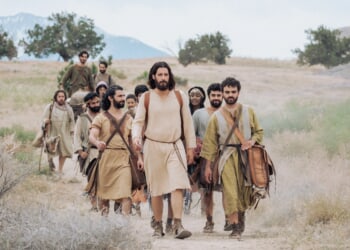CNA Newsroom, May 10, 2025 /
11:45 am
An effort backed by the U.S. bishops to protect a centuries-old Native American religious site from destruction scored a win in federal court on Friday when a district judge blocked the sale of the location while the matter is considered by the U.S. Supreme Court.
U.S. District Judge Steven Logan said in the Friday order that the federal government would be prohibited from selling the Oak Flat site in Arizona while the coalition group Apache Stronghold waits for the Supreme Court to potentially consider its case.
The federal government several years ago moved to transfer Oak Flat to the mining company Resolution Copper after having protected the site for decades. The group’s proposed mining operations would largely obliterate the site, which has been viewed as a sacred site by Apaches and other Native American groups for hundreds of years and has been used extensively for religious rituals.
Apache Stronghold filed a challenge to the transfer, arguing that it violates both the federal Religious Freedom Restoration Act (RFRA) and an 1852 treaty protecting Apache territory. The religious liberty law group Becket is representing the group in the case. Several lower courts have already ruled against the Native American group.
Logan in his Friday ruling said he was persuaded by “the fundamental freedoms at stake in this case.”
“It is undisputed that if the transfer goes forward and Resolution Copper’s mining plans are effectuated, [the Native American groups] will suffer irreparable harm in the long term,” he wrote. The injunction, meanwhile, would “not stop Resolution from mining a single ounce of copper should the transfer ultimately be upheld.”
The “balance of equities” in the dispute is in favor of Apache Stronghold, Logan said, insofar as they have “established a likelihood of irreparable harm should the transfer proceed” and have raised “serious questions” about the merits of the case.
The injunction will hold until the Supreme Court either refuses to hear the case or else issues a decision should it take the case up, Logan ordered.
U.S. bishops say transfer ‘jeopardizes religious liberty’
Last year the U.S. Conference of Catholic Bishops (USCCB) joined an amicus brief with the Christian Legal Society and the Assembly of Canonical Orthodox Bishops of the United States of America, arguing that the lower court decisions allowing the sale represent “a grave misunderstanding of RFRA that fails to apply its protections in evaluating that destruction.”
The transfer of the land “jeopardizes Native American religious practice and religious liberty more broadly,” the groups argued.
The Knights of Columbus similarly filed a brief in support of the Apaches, arguing that the decision to allow the property to be mined “reads into RFRA an atextual constraint with no grounding in the statute itself.”
The decision is devastating not just to the Apaches but to “the myriad religious adherents of all faiths and backgrounds who use federal lands every day for their religious exercise,” they said.
Religious liberty scholars from the Notre Dame Law School, Seton Hall University, and the University of St. Thomas School of Law also filed a brief backing the Native Americans. Numerous other religious groups also filed amicus briefs.

















